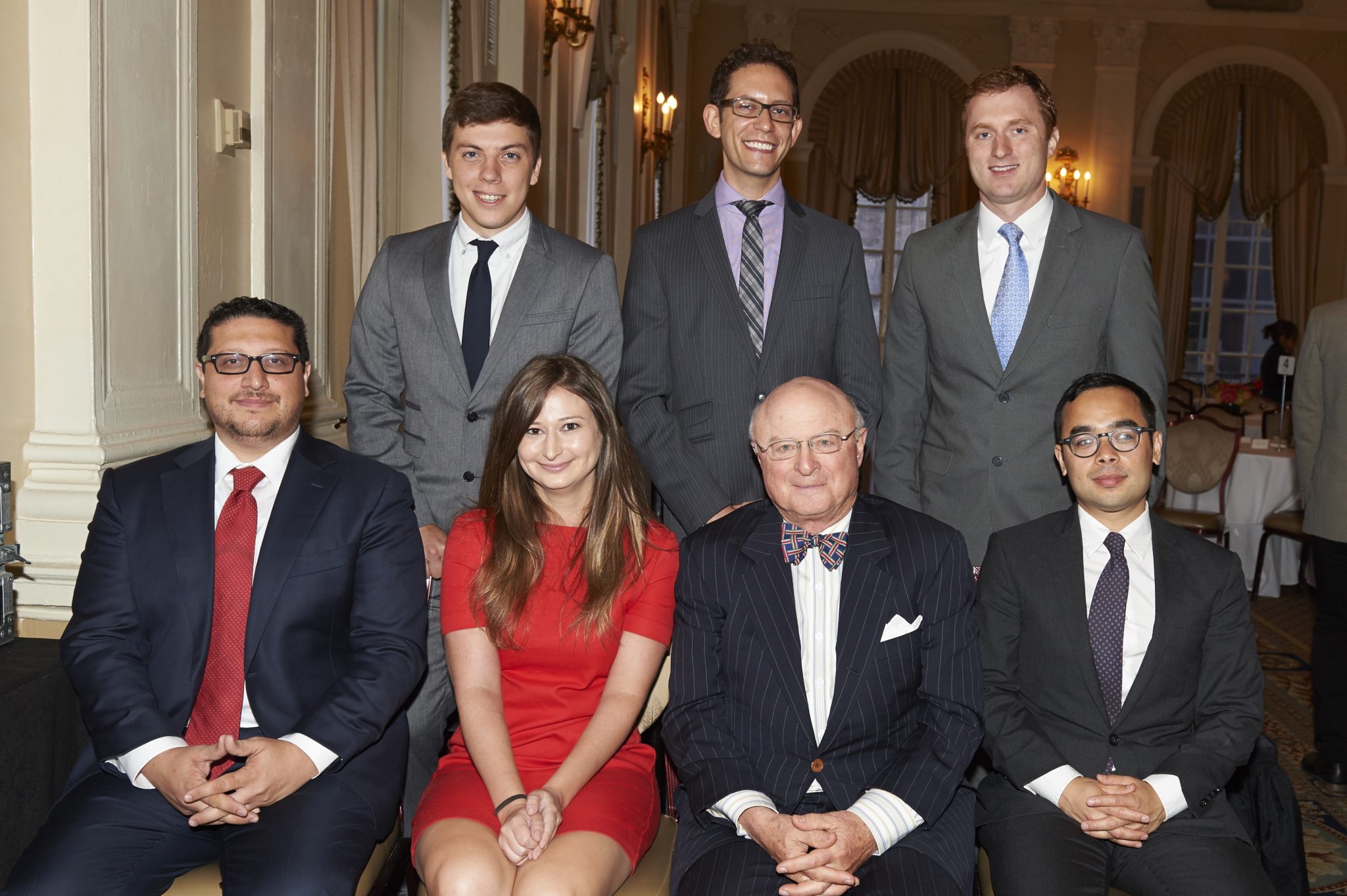
Today the Livingston Awards honor stories that represent the best in local, national and international reporting by journalists under age 35. The winning stories highlight an investigation proving the innocence of a man serving two life sentences for murder, the deadly consequences of a teenage asylum-seeker in the flawed U.S. immigration system, and early Covid reporting from Wuhan, China. The $10,000 prizes are for work released in 2020.
The Livingston Awards also honored Susan Chira, editor-in-chief of The Marshall Project with the Richard M. Clurman Award for mentoring. The $5,000 prize is given each year to an experienced journalist who has played a pivotal role in guiding and nurturing the careers of young reporters. The prize is named for the late Richard M. Clurman, former chief of correspondents for Time-Life News Service and architect of the Livingston Awards.
Livingston Awards national judges Anna Quindlen, author, Matt Murray of The Wall Street Journal, Raney Aronson-Rath of FRONTLINE and Lydia Polgreen of Gimlet introduced the winners at an online ceremony, hosted former Livingston Award national judge Christiane Amanpour of CNN and PBS.
“We are always moved by the work of our Livingston Award entrants, finalists and winners. But the work published in 2020 is especially important and inspiring. Under incredibly difficult reporting circumstances, these tenacious journalists doggedly pursued work that pushed criminal justice, immigration and global public health systems – toward truth, transparency and greater accountability,” said Livingston Awards Director Lynette Clemetson. “We are proud to honor this year’s winners and we look forward to extending the reach of their work and following their promising careers.”
Celebrating its 40th year, the awards bolster the work of young reporters, create the next generation of journalism leaders and mentors, and advance civic engagement around powerful storytelling. The sponsors include the University of Michigan, Knight Foundation, the Indian Trail Charitable Foundation, the Mollie Parnis Livingston Foundation, Christiane Amanpour, the Fred and Judy Wilpon Foundation, and Dr. Gil Omenn and Martha Darling.
The 2021 winners for work released in 2020 are:
Local Reporting
Joshua Sharpe, 33, of The Atlanta Journal-Constitution for “The Imperfect Alibi,” an exhaustive re-examination of a 35-year old double murder mystery that debunked the alibi of a long-overlooked suspect and proved the innocence of a man wrongly imprisoned for 20 years.
Only very rarely does one of our stories – one of us – change the course of human events. For more than two decades, a man said that he wasn’t the person who murdered a deacon and his wife, both pillars of the local black community in Spring Bluff, Georgia. Joshua Sharpe asked the right questions, refusing easy answers and pretty much proved that man was telling the truth and was innocent. And that another man was guilty of those crimes and had gotten over for so many years with an alibi so thin that you could read a newspaper through it. – Anna Quindlen
National Reporting
Hannah Dreier, 33, of The Washington Post for “Trust and Consequences,” a portrait of Kevin Euceda, a teenage asylum-seeker fleeing Honduras, who was held in U.S. custody and required to see a therapist only to have notes from those confidential sessions turned over to ICE and used against him in court hearings.
Hannah Dreier’s series does what the best reporting can do. It leaves an indelible impression by making abstract policy and institutional decisions, human and concrete, and shows the effect they can have on real lives. Whatever one’s views on immigration, no one who reads these stories can fail to be moved outraged and informed by them. – Matt Murray
International Reporting
Chao Deng, 32, of The Wall Street Journal for “On the Front Lines in Wuhan,” a remarkable series of reports which, despite the Chinese government’s attempts to silence her, tells the complex and rapidly evolving story on the ground at the epicenter of the coronavirus pandemic in the early stages of the crisis.
The gathering of anonymous accounts from government officials, paired so eloquently with family stories of Chinese citizens, dealing with the then mysterious outbreak. Chao Deng’s reporting amplified the voices of the citizens of Wuhan. It was, and is, vital and crucially important journalism. – Raney Aronson-Rath
Mentoring Award
Susan Chira was honored with the Richard M. Clurman Award for her newsroom commitment to counseling, nurturing and inspiring young journalists. Chira is the editor-in-chief of The Marshall Project and former deputy executive editor of The New York Times. In a video tribute introduced by Lydia Polgreen, reporters from The New York Times and The Marshall Project spoke about Chira’s influence on their careers.
Susan inspired me to follow in her footsteps and become a leader, a mentor, a coach and an editor. Looking back now I know that the most important work of my life is not the swashbuckling exploits that I enjoyed as a young foreign correspondent. Susan inspired and championed that work for sure. But more importantly, she inspired me to emulate her leadership and to be a Susan Chira for everyone who wasn’t lucky enough to work with the real Susan Chira. – Lydia Polgreen
In addition to Quindlen, Murray, Aronson-Rath and Polgreen, the Livingston national judging panel includes; Ken Auletta of The New Yorker, Dean Baquet of The New York Times; John Harris, co-founder of Politico, Clarence Page of the Chicago Tribune; María Elena Salinas, CBS News contributor; Bret Stephens of The New York Times; and Kara Swisher of The New York Times and Vox Media.
More on the winners here.
Watch the virtual ceremony here.
About the Livingston Awards
The Livingston Awards for Young Journalists are the most prestigious honor for professional journalists under the age of 35 and are the largest all-media, general reporting prizes in American journalism. Entries from print, online, visual and audio storytelling are judged against one another, as technology blurs distinctions between traditional platforms. The $10,000 prizes are awarded annually for local, national and international reporting. The Livingston Awards are a program of Wallace House at the University of Michigan, home to the Knight-Wallace Fellowships for Journalists and the Wallace House Presents event series.





